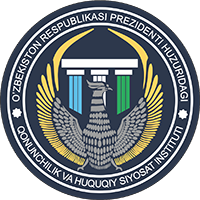On May 30 of this year, a chief researcher at ILLP B.Muminov participated online with a report at an international roundtable organized by the Institute of Legislation and Legal Information under the Ministry of Justice of the Republic of Kazakhstan on the theme: “Ways to modernize modern administrative law in the context of Kazakhstan and foreign experience”.
During his report, the expert highlighted the following key problems that require systemic reflection during the modernization of administrative legislation:
Firstly, the state has the right to decriminalize and remove certain acts from the scope of formal criminal law, designating them terminologically at its discretion. However, in doing so, it is obliged to preserve the full scope of classic criminal procedural guarantees in the proceedings for such cases if the punishment for them is criminal-repressive in nature (e.g., fine, arrest, prohibition from a profession). Consequently, the state is not entitled to circumvent criminal procedural guarantees by formally changing the name of the liability regime. In the human rights context, it is not the form that matters, but the real content of the prosecution and its consequences for the individual.
Secondly, a discrepancy arises between the formal complexity of the legal text and the need to ensure its accessibility. Modern editions of Codes on Administrative Offenses often abound with technocratic formulations, making them practically inaccessible to the main group of addressees—citizens who do not possess special legal training. This violates one of the fundamental principles of the legal system—the principle of legal certainty and accessibility of the law.
Thirdly, the issue of proportionality of administrative penalties remains unresolved. The application of excessively harsh sanctions for formally minor offenses not only violates the balance between the offense and the punishment but also undermines trust in public authorities. This challenge requires a systemic reassessment of danger scales and a value reorientation of administrative repression.
In this context, it was noted that the experience of the Republic of Kazakhstan seems particularly valuable. Kazakhstan demonstrates an example of progressive modernization of administrative law, including the institutionalization of administrative justice, a rethinking of the concept of administrative delict, and attempts to restore the Code of Administrative Offenses to its fundamental functions. Given the legal, historical-cultural, and social parallels between Kazakhstan and Uzbekistan, this experience can be highly adaptable and utilized within the framework of Uzbek reform.

